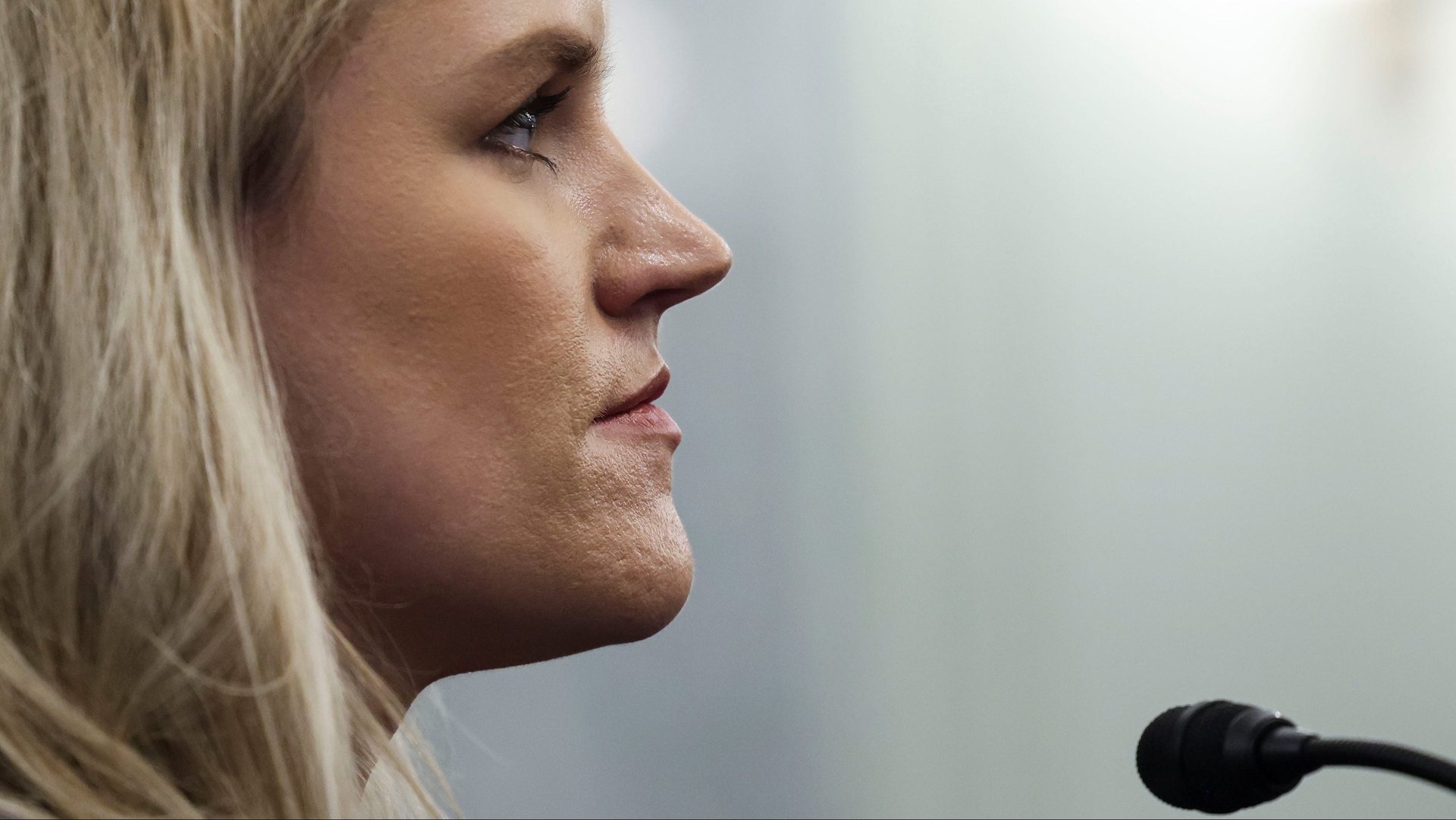Wall Street didn’t ask about the Facebook whistleblower in the latest earnings call
On Monday (Oct. 25), a consortium of news organizations reported on the contents of the Facebook Papers, a trove of internal company documents released by product manager-turned-whistleblower Frances Haugen. It was a downpour of bad news after a steady rain for the social media giant: Facebook has been defending itself against leaks of internal documents and deliberations since early September.


On Monday (Oct. 25), a consortium of news organizations reported on the contents of the Facebook Papers, a trove of internal company documents released by product manager-turned-whistleblower Frances Haugen. It was a downpour of bad news after a steady rain for the social media giant: Facebook has been defending itself against leaks of internal documents and deliberations since early September.
In prepared remarks, Facebook CEO Mark Zuckerberg led off the company’s third-quarter earnings call defending against what he called a “coordinated effort to selectively use leaked documents to paint a false picture of our company.” Zuckerberg claimed Haugen and others falsely portrayed the company as motivated by money over concerns for safety, privacy, free expression, and other matters. He deflected any blame for rising political polarization in the US, arguing that the trend preceded Facebook.
“It makes a good sound bite to say that we don’t solve these impossible trade-offs because we’re just focused on making money, but the reality is these questions are not primarily about our business, but about balancing different difficult social values,” said Zuckerberg. “I’ve repeatedly called for regulation to provide clarity because I don’t think companies should be making so many of these decisions ourselves.”
On the call, Wall Street analysts asked no further questions about the regulatory, political, and ethical challenges raised by internal documents leaked to journalists that have made Facebook front-page news for more than a month. Instead, analysts focused largely on the company’s advertising business, efforts to court younger users, and plans to invest in virtual reality and “the metaverse.”
Zuckerberg’s focus on the call emphasized its plan to weather digital advertising headwinds from Apple’s user privacy protections, and ensure teens and young adults still use Facebook’s products.
Facebook is losing Gen Z
Facebook appears to be losing popularity with its most coveted advertising demographics. On Monday, The Verge reported that Facebook’s teen user base had declined 13% since 2019 and is projected to drop 45% in the next two years. Teens have flocked to TikTok and Snapchat, among others, spurning Facebook despite the company’s efforts to emulate those apps.
Zuckerberg singled out the Chinese social media platform TikTok as Facebook’s main competitor. On the call, he announced his intention to heavily invest in Reels, Facebook’s TikTok copycat feature. Zuckerberg told analysts that 18-29-year olds are the company’s “north star,” and it would avoid “optimizing for older people.”
But Facebook’s relationship with children and young adults is an issue of growing public concern. The Wall Street Journal reported on Facebook internal documents that allegedly showed Instagram was harmful to teen girls who already struggled with self-image problems. And the company paused plans to roll out a kids version of Instagram after criticism from lawmakers and other critics that Facebook is trying to get kids hooked on its services at younger ages.
But if Monday’s earnings call was any indicator, Washington and Wall Street concerns are miles apart. Facebook needs no charm offensive on Wall Street. Bank analysts focused their questions on expanding Facebook’s current business, ignoring critics’ central charge that Facebook’s focus on its bottom line comes at the expense of its users’ welfare and ultimately its ability to sustain its business.
So far, investors have proven willing to stick with the company as long as it can keep the ad dollars flowing in, and user numbers growing. Despite the mounting controversy, Facebook’s market capitalization has tripled since 2016. Zuckerberg’s focus on chasing a younger, and growing audience, means he’s hoping to do exactly that.